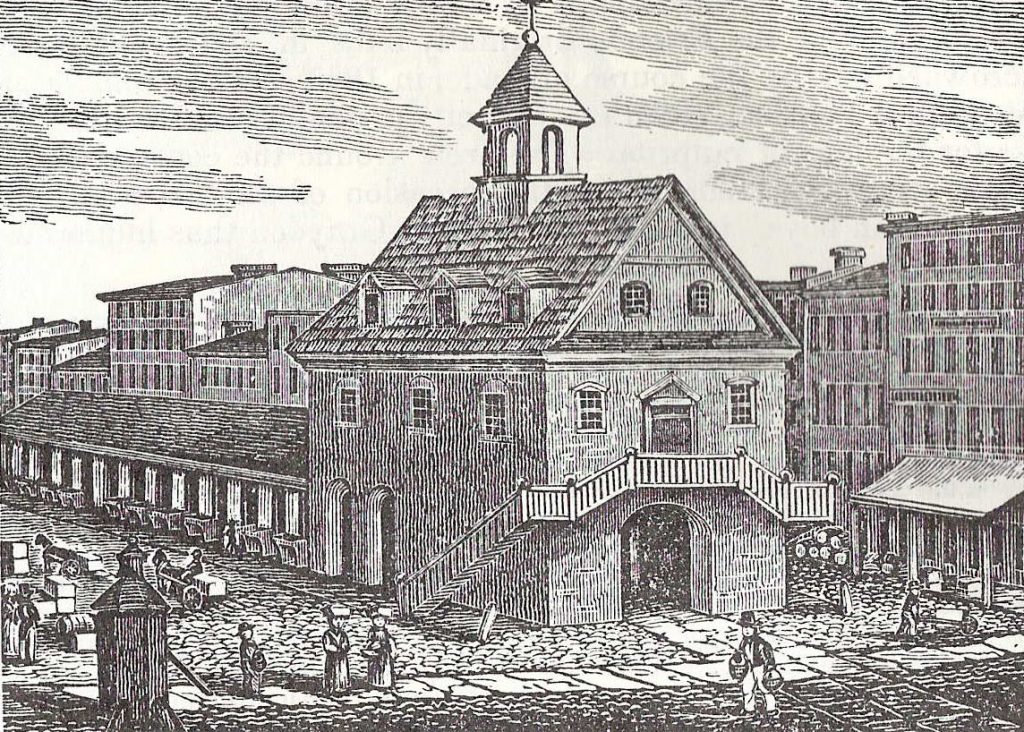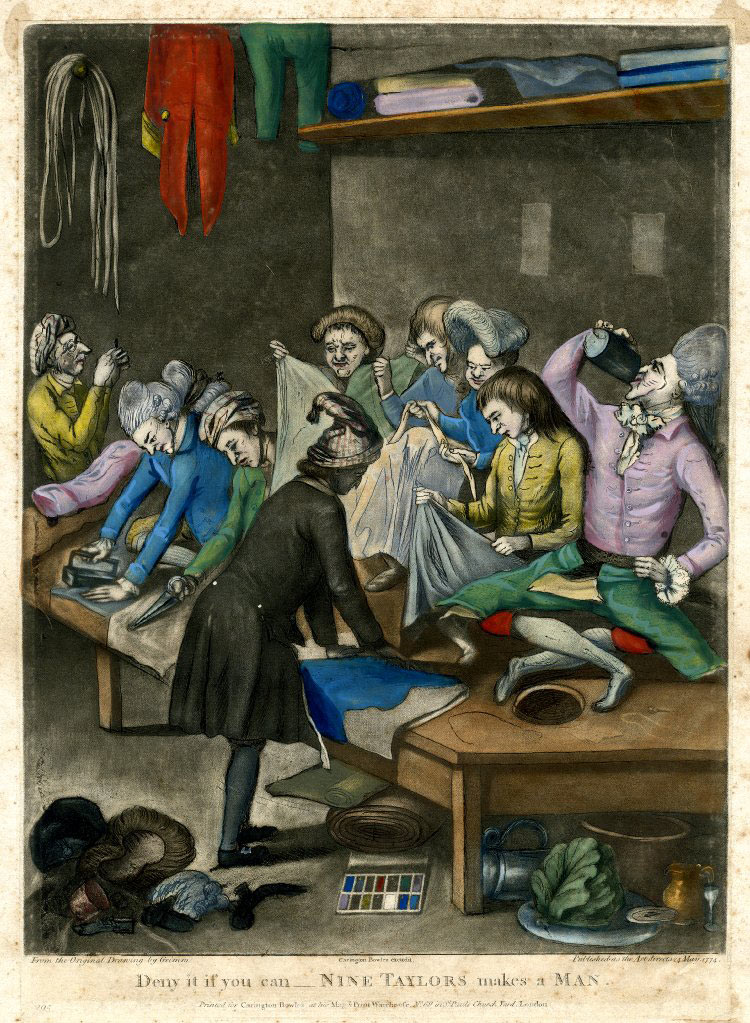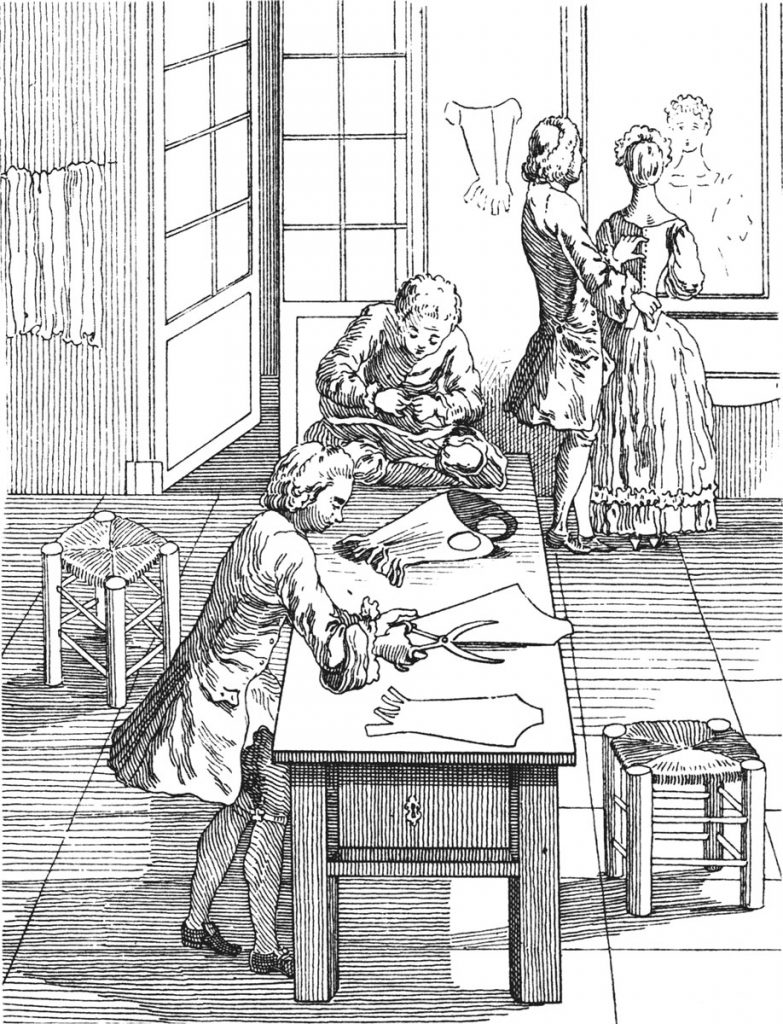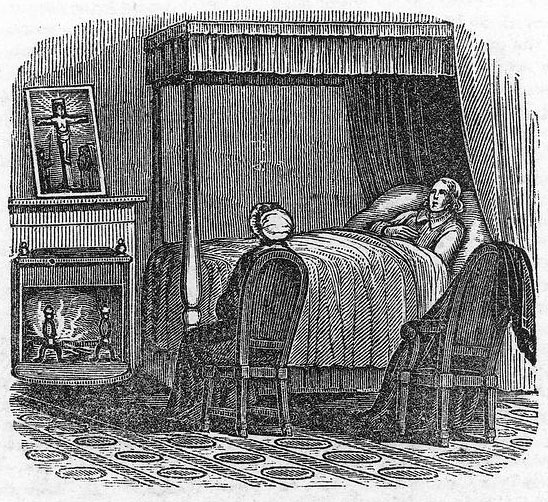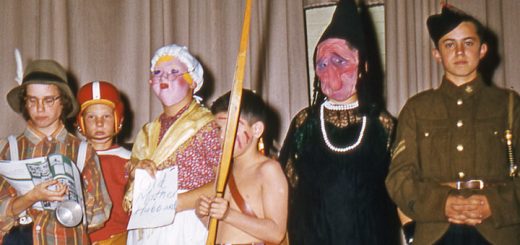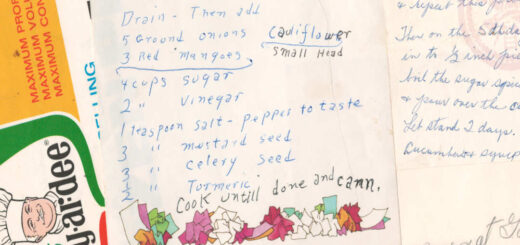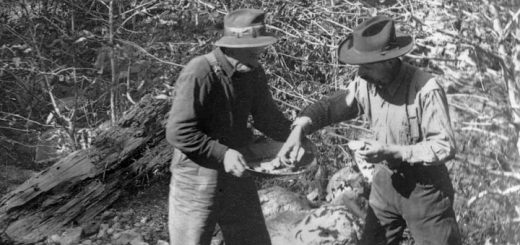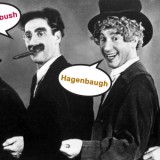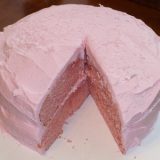The Book, Part 3
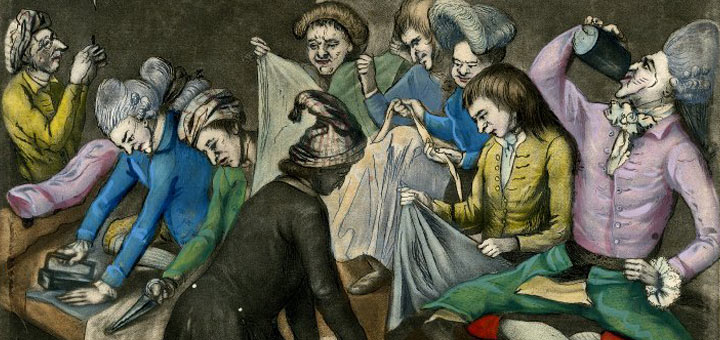
Below is a continuation of the story of the Lutheran pietist book, Wahren Christentum (True Christianity) written by Johann Arndt, which was willed to John Hagenbuch (b. 1763) by his father, Andreas Hagenbuch (b. 1715). Previously in Part 2, John has not lived up to his father’s hopes for his son to lead a successful, godly life. So, John was sent to Philadelphia to apprentice with a tailor, Andrew Hertzog.
The Book, Part 3
It was the summer of 1785, late evening, and John Hagenbuch was walking back from the City Tavern in Philadelphia to Hertzog’s Tailor Shop where he was apprenticed. Accompanying him was his friend Henry who was the “second tailor” under Andrew Hertzog, owner of one of the finest tailoring establishments in the city. Master tailor Hertzog was well respected for his craft. His reputation was such that one of his clients was Captain John Barry, an American naval officer for whom Hertzog had tailored several uniforms.
Since coming to Philadelphia last year at his father’s orders, apprentice John had diligently learned the tailor’s trade. He was a quick study and worked hard to please Mr. Hertzog who, at times, could be a tyrannic teacher. John had easily made friends with the other tailor, Henry Voelker, in the thriving business. And although they were both proud of their work and kept their noses to the grindstone during the day, many evenings they frequented the taverns and dark alleys of the city.
John knew that his father, Andreas, kept watch on him through business acquaintances that lived in and around Philadelphia, one of them being Mr. Hertzog himself. Since being in Philadelphia for over a year, John had received only one letter from his father. However, it was not a letter of chastisement due to John’s evening escapades. It was a newsy letter of what was happening on the homestead in Berks County, some information about his mother, and of course, a written prayer at the end asking God to give John guidance.
Andreas was a pietist—a follower of Johann Arndt. Andreas had preached to John so many times from Arndt’s book Wahres Christentum that John knew many passages by heart. Andreas had ended his letter to John with not only a prayer, but also a quote from “the book”:
Do not trouble yourself over temporal things. The whole world is not worth as much as your soul, for which Christ died. Learn to give up the world before it gives you up.
John knew that his father was aware of the life that he was leading in Philadelphia. He knew that his father heard how John was a model apprentice during the day but that many evenings he was spending time in the taverns and in the company of ladies who were not respectable. Over a year ago, John had broken off his relationship with Simon Dreisbach’s daughter, Magdalene. He had not written to her nor she to him. However, a few months ago, John had bumped into an old friend of his from the Northampton Militia and had sent a word-of-mouth message to Magdalene that he still had a deep affection for her.
John and Henry approached the back door of the tailor shop. They let themselves in, lit a candle in the work room, and sat down. There were still some coals in the hearth so they filled their pipes and lit the tobacco. Leaning back, they relaxed and smiled. They talked quietly about the evening they had just experienced. An eavesdropper would have been able to catch phrases such as “sweet Molly,” “gin punch,” “that rogue Silas,” “perfumed hair,” and “cock fighting.” They whispered so that Mr. Hertzog, asleep upstairs, would not hear them. Finally, Henry tapped out his pipe, whispered, “Guder nacht,” and stumbled off to his cot.
John gazed around the room. What a different life he now led since coming here over a year ago. He remembered his first days and how he learned to sit on the worktables to sew. A tailor sat high up with legs crossed so the material flowed better across the lap. He learned different stitches, different types of materials, and how to cover buttons. Since he could read and write, Master Hertzog even allowed John to read through Monsieur de Gersault’s 1769 book on expert tailoring.
Just in the last month, Mr. Hertzog and Henry were teaching him how to take the 19 measurements required to make a gentleman’s coat and to lay out patterns. John banked the fire in the hearth and stood. He was weary. It had had been a night of frivolous living and was nearly 2 AM. Stitching for Mr. Hertzog began at 6 AM. He knew he had to get some sleep, since he would suffer from a “koppweh” all day. No matter.
As he moved to the other room where his cot was, a black cloud of foreboding suddenly overtook him. His father’s face flashed before him. John slipped off his shoes and lay down fully clothed to try to sleep. But, the face of his father would not leave his mind. Scenes of his childhood moved across the fabric of memory: his father walking beside him—laughing—and then picking him up to walk from the fields to the house that Andreas had built with his own hands. The strongest image of all was sitting in the Stub with his father as they read together from “the book.” That book was almost as important to Andreas as the Holy Bible. John fitfully slept for a few hours.
He awoke with a start. Henry was shaking him. “John, up with you! The Master is asking where you are. Quick, make yourself presentable!”
John jumped up. He went to the chamber pot in the corner, and then to the bowl where he washed and quickly queued his hair. He smoothed out his clothes best he could and entered the work room. The Master was cutting out a paper pattern. He stopped and looked at John disapprovingly. “John! While you were out last night a messenger came with something for you. It’s laying on the side table. When you are finished reading it, begin stitching that coat for Mr. Todd.”
Remembering the dreams he had during the night, John slowly picked up the letter and broke the seal. From the other side of the room, Henry watched John’s face as the young man read the letter. The face grew into a frown, then a hand covered the eyes.
Mr. Hertzog looked over. “I realize that is from your father. What is his news? Will he be coming to Philadelphia to visit as I would enjoy entertaining my good friend…” Hertzog’s voice trailed off as he saw the look of despair on John’s face.
John contained himself and looked to his Master. “Father writes that he has had some illness. Other than that, no news.”
John crawled on top of the table. He took Mr. Todd’s unfinished coat and began stitching.
Later that day when they could be alone, Henry took John aside and asked him to be honest with him about the message.
“The letter was from my brother, Michael. Father is very ill. Last week he fell down while walking through one of our rye fields. Since then he has laid in his bed, not being able to talk or eat. He lies with his eyes closed and breathes shallow. Henry, I must go home to him…now.”
Henry took his friend by the shoulder. “You know I have spoken with the Master about starting my own business, for which he disapproves. I have thought about walking out on him. I believe I can do better on my own, maybe even in Reading town where you say the population is growing, where more gentlemen are needing tailored clothing. If your mind is made up, let’s leave this evening. Master Hertzog cannot stop me, but he will want you back because your apprenticeship is not fulfilled for another few years. You will need to take your chance with that. He has dealt with your father on business matters so he may allow the apprenticeship agreement to go by the wayside. What do you say?”
Never being one who hesitated at an opportunity, be it right or wrong, John agreed. They finished their work by 7 PM and, by chance, Mr. Hertzog went out for the evening to attend his gentlemen’s club. Soon after he was gone, Henry Voelker and John Hagenbuch began with their plan. To leave the city they would need to have some sort of cover; for as soon as Hertzog arrived home he would set up the alarm.
Henry suggested that John dress as a gentlemen, and Henry would portray his servant as they left Philadelphia. John could borrow a set of clothing from those that were already made up for Mr. Willing’s son, Thomas. As John dressed in the garish outfit, both men smiled. For, although this was a serious endeavor, they were embarking upon quite an adventure. The two grabbed some food from the larder, went out by the side door and took off west along the dimly lit streets of Philadelphia. As one last deed before leaving, John slipped several pounds he had won at gambling in a jar sitting on the worktable. That would help to defray the cost of the borrowed clothing.
On their way out of the city, they made known their presence to several passersby. After several hours of travel along moonlit roads, John changed into his regular clothing of plain waistcoat, breeches, and frock coat, stashing the orange coat and Nankeen yellow breeches beside an outbuilding which they passed. Hertzog would be putting out the alarm with a description of two men—one of them dressed in gentleman’s clothes. Now, that description would not fit with what John was wearing.
For two days they traveled fast along the road to Reading while keeping a low profile. They had enough money to purchase food and when they were in the presence of other people, their concocted story of two business men going west to seek their fortune was plausible.
Upon reaching Reading, they shook hands hurriedly and John took off north toward the homestead in Albany Township. It was a long, 30 mile journey. Stopping a few times to ask for food and if he could get an hour or so of sleep in a barn, every person he talked to seemed to know of his father’s plight; for in the area north of Reading, Andreas Hagenbuch was a household name. Andreas had been one of the earliest Berks County settlers and had dealt with most everyone in the area in one way or another. His reputation was such that his death would be the end of an era.
And so, John’s life as a young, rebellious man ends with his arrival at his boyhood home. After the few days of hurried, painstaking travel along the 90 mile route from Philadelphia to the Hagenbuch homestead, he stepped across the threshold to find his family surrounding the bedside of his father, Andreas. His mother sat nearby in a chair with whispered prayers on her lips. His brother Michael embraced him and steered him to their father’s side.
Michael whispered, “He asked for you three days ago but has not spoken or opened his eyes since.”
As John stroked his father’s hand, Andreas opened his eyes and clearly stated in Pennsylvania Dutch, “How did you know I was here?”
John’s broken reply in the same language was almost inaudible through his tears, “Father, I… I will always… always.”. His voice faltered and at that moment Andreas’ eyes closed and he passed on.
The room was completely quiet. John whispered a request for prayer, “Loss mir bede.” Fashioning the prayer from the words of Johann Arndt’s book, John lifted up his voice:
Heavenly Father—In death, we are all alike poor, and our earthly glory does not follow us. But, we know that You will take away the insult of Your servant’s, Andreas, death from all of us and You will destroy the cover that is cast over all of us and will swallow up death forever and wipe away all tears from our eyes. We know that You have taken Your servant, Andreas, to be with You in the Eternal Home. He lived the narrow life in which the soul must strive against everything that is earthly. We pray that You give us the strength to live a pious life like our dearly departed father and husband of our mother. Amen.
When he finished, Michael and John walked out to the Stub, leaving the rest of the family grieving around the now dead body of the patriarch. Michael took down Wahres Christentum from the shelf and handed it to John. “I have already looked at Father’s will. He wants you to have this.”

